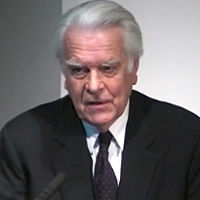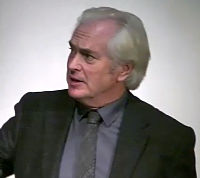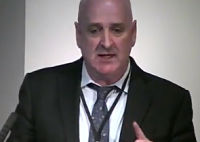Indexes - all Resources
Conference 2014 video. Lord David Owen: Historic ‘toe-holders’ and time limits
"I should start with one of the most charismatic politicians of the 20th Century, Franklin D Roosevelt. He was not a consensual figure; he knew how to hate… he was hubristic in the sense that many politicians and leaders are hubristic but I don’t think he ever developed Hubris Syndrome…. (because) in his life he had people who he encouraged to disagree with him." https://youtu.be/zu_BuPY4wkg Lord David Owen, Clinical Neurolo...
Written by: Owen, Lord David.
View
In praise of leaders. (2014) We badly need leaders, but human beings have come to realise power is a two-edged sword.
"We need leaders, and we need leaders with the appetite for it. Leaders need to get satisfaction from wielding power because if they don’t, they will not experience the pharmacological benefits Professor Ian Robertson, Professor of Psychology, Trinity College Dublin Posted on his blog ‘The Winner Effect’, 28 March 2014 “We need leaders, and we need leaders with the appetite for it. Le...
Written by: Robertson, Ian
Read moreConference 2014 video. Gillian Hyde: Influential partnerships – a possible role for a modern day court jester
"Derailers in organisations are inevitable and their impact increases as they move up the career ladder. At the same time, counter-balances decrease; there is no-one contradicting or advising people as they move up the hierarchy. So I want to develop a model of ‘influential partnerships’ and whether there is a role for a modern day court jester." https://youtu.be/DbJwJicH3i4 Gillian Hyde, Chief Psychologist, Psychological Con...
Written by: Hyde, Gillian.
ViewConference 2014 video. Prof Ian Robertson: The winner effect – the neuropsychology of power
“Approach and avoidance are fundamental human urges – approaching things we need, like food or sex, and avoiding things that will destroy us. ….The ‘approach’ system of the brain is more closely linked to the dopamine system of the brain… and when you are in a position of power, it activates the brain’s ‘approach’ system.” https://youtu.be/0vItDtgBlgE Professor Ian Robertson, Founding Director of Trinity Colleg...
Written by: Robertson, Ian.
ViewConference 2014 video. Prof Dennis Tourish: Dysfunctional leadership in corporations
"There are problems with the way leadership is approached and theorised about…. There is an almost over-fixation with leadership and the idea that it is the single most important thing in organisational performance…. How many books are there on followership?" https://youtu.be/I9O5r-_2V0s Dennis Tourish, Professor of Leadership and Organisation Studies at Royal Holloway, University of London discusses ‘Dysfunctional leadership in corpo...
Written by: Daedalus admin
View
Narcissism and perversion in public policy. (2014) Separating risk from responsibility disengages policy makers from consequences.
"Separating risk from responsibility in the financial sector was not merely about creating perverse incentives, but about disengaging policy makers from the all too predictable consequences of such policies Marianna Fotaki, Professor of Business Ethics. Warwick Business School
Written by: Fotaki, Marianna
Read moreConference 2014 video. Prof Adrian Furnham: the psychology of leadership derailment
"I'm very interested in this question of management derailment and why leaders cock-up and fail." Adrian Furnham, Professor of Psychology, Clinical, Educational & Health Psychology, Division of Psychology & Language Sciences at University College London, discusses ‘Sub clinical narcissism - the psychology of leadership derailment’. Recorded at the Daedalus Trust-RSM conference 'Leadership; stress and hubris' in London, November 201...
Written by: Furnham, Adrian.
ViewDivide and conquer: When and why leaders undermine the cohesive fabric of their group. (2014)
"..leaders sometimes sabotage their own teams to protect their own power. Charleen R Case, Northwestern University. Evanston, Ill, Jon K. Maner, Kellogg Schoool of Management, Northwestern University. Evanston Ill, Journal of Personality and Social Psychology Vol 107(6), Dec 2014, 1033-1050. It’s assumed that leaders work to enhance positive social bonds among group members to facilitate cooperation and ...
Written by: Case, Charleen R. & Maner, Jon K.
Read moreWhat makes a Prime Minister great?: A Leadership Trait Analysis of the effectiveness of British Prime Ministers from 1902 to 2004. (2014)
“Leaders projecting strong power motivation are significantly more likely to have their time in office considered effective. Samuel R. Rohrer, Department of Political Science and International Affairs, University of North Georgia, USA Research and Politics October-December 2014: 1–8 Leadership Trait Analysis (LTA) criteria … “examine an individual’s underlying desire for power, the belief tha...
Written by: Rohrer, Samuel R.
Read more
Corporate psychopathy: can ‘Search and Destroy’ and ‘Hearts and Minds’ military metaphors inspire HRM solutions? (2014)
Marshall, Ashleigh et al. "Military planners have for decades worked to balance ‘Search and Destroy’ and ‘Hearts and Minds’ strategies. A similar balance may be the best defence against corporate psychopathy. Alasdair J. Marshall, Melanie J. Ashleigh, Denise Baden; Centre for Risk Research, School of Management, University of Southampton: Udechukwu Ojiako; Faculty of Management, University of Johannesburg: ...
Written by: Marshall, Ashleigh et al.
Read more











